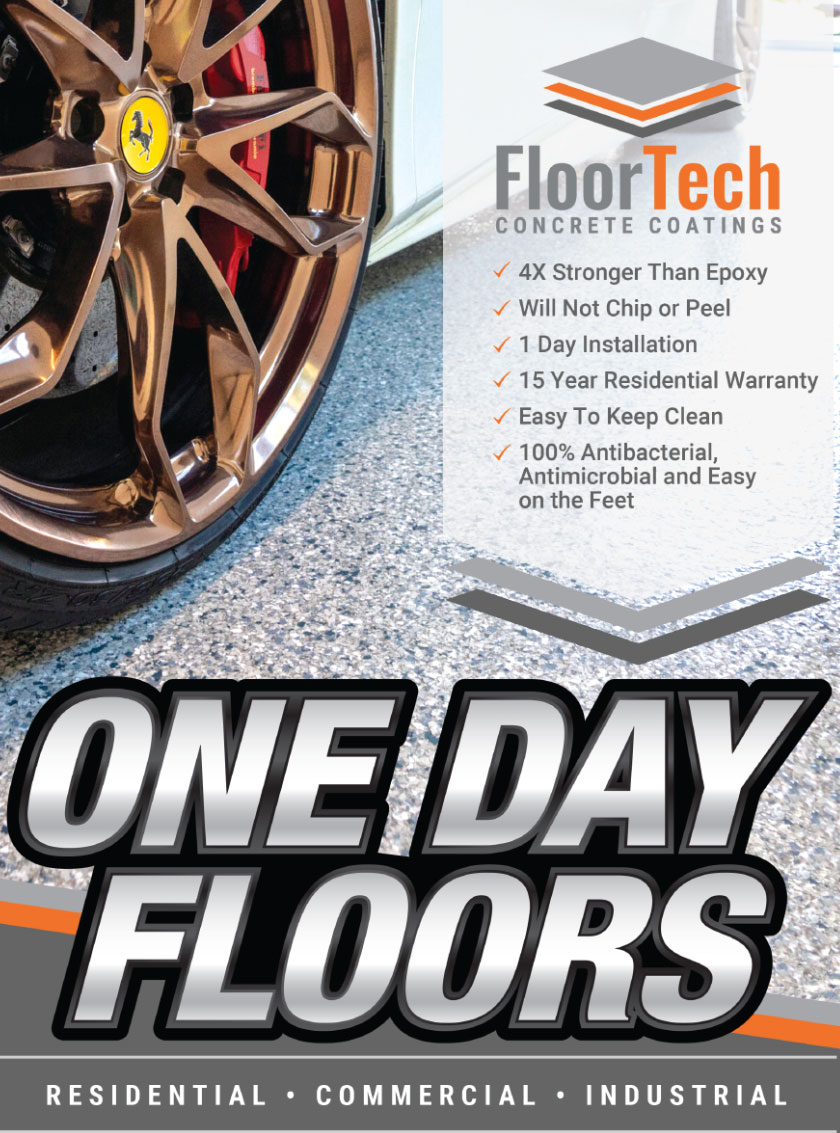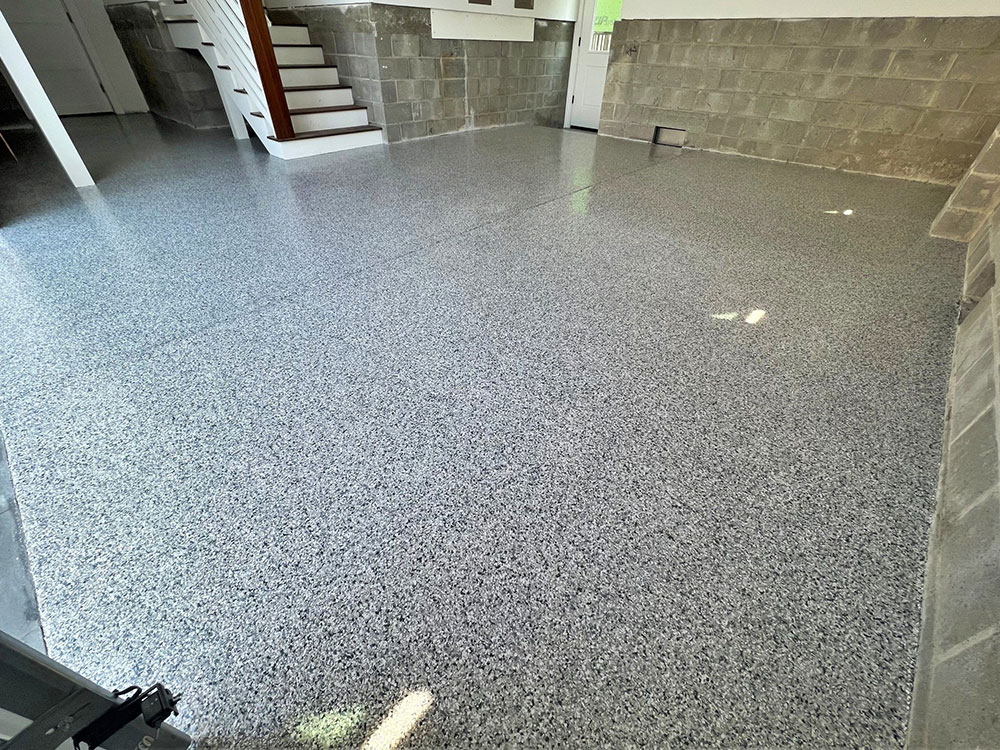Have you ever visited a car showroom, warehouse, or manufacturing facility and noticed how tough and durable the flooring is? This is because it is often coated with polyaspartic or polyurea, which can withstand heavy foot traffic and chemical exposure. These coatings are an ideal option for industrial settings where longevity and durability are essential.
In this blog, we’ll discuss more things you should know about polyaspartic and polyurea coating, along with their benefits.
Use of Polyurea and Polyaspartic Coating
Since polyurea and polyaspartic coatings cure quickly and are more durable than epoxy, contractors frequently choose them over epoxy. Due to their quick 24-hour curing times, these coatings are highly sought after for industrial, commercial, and residential projects.
It could be a daunting task for you to wait for the coatings in your garage or other areas of your home to cure might be inconvenient. A 24-hour cure period versus several days is a far more convenient solution.
Meaning of polyurea coating
Polyurea is the optimal choice for concrete coating due to its exceptional strength and versatility. Its formation involves the combination of synthetic resin and isocyanate through step-growth polymerization. It leads to the production of a remarkably durable and adaptable elastomer.
Benefits of polyurea concrete coatings
There are many reasons why choosing polyurea concrete coatings is a smart move.
- Incredibly long-lasting and adaptable to various conditions.
- They can withstand temperature changes without breaking a sweat and have high resilience to impact.
- Diminishing resistance is impressive and dries up quickly too.
These coatings are the definition of long-lasting, making them a smart investment for any project.
Meaning of Polyaspartic Coatings
If you’re familiar with polyurea coatings, you’ll find that polyaspartic concrete coatings are very similar. Professionals manufacture it by combining a partially blocked amine with an isocyanate to create a unique form of polyurea. Interestingly, these coatings share common features and are part of the same family as polyurea’s and polyurethanes.
Benefits of polyaspartic concrete coatings
Polyurea and polyaspartic coatings have a similar composition and thus offer comparable benefits. Here are some advantages of using polyaspartic coatings for floors:
- Low levels of VOCs (volatile organic compounds)
- Quick drying time
- Oil and stain resistance
- Impact and scratch resistance
- UV resistant
- High-gloss sheen
- Polyaspartic, like polyurea concrete coatings, are highly robust, impact and scratch resistant. However, because of their low VOC content, their odors will not linger for long after application, which can be harmful to your health.
Tips to Keep Polyaspartic Flooring in Good Condition
Polyaspartic coating is UV resistant and non-porous, making it four times more durable than epoxy coating. You can reinforce this by taking excellent care of your flooring. Here are four pointers to help you get the most out of your flooring.
1.Hire a Professional Concrete Coating Company
When coating your concrete floors, adopting the DIY (do it yourself) approach might be tempting to essentially “cut out the middleman” and perhaps save money. However, this option frequently comes with hidden expenditures such as future maintenance and replacement demands.
Professional concrete coating installers are subject matter experts who can help you avoid these problems by providing high-quality materials, cutting-edge technology, and design alternatives to suit your needs.
2.Sweep regularly
Dirt and debris can scrape and scratch against the surface of your flooring, tarnishing them. You can keep them looking good for longer if you keep them clean.
3.Keep your floors safe
Take good care of your flooring. If you must move heavy equipment across your flooring, place it on a towel or mat to protect your floors from damage.
4.Lasts longer
When cleaning, avoid using abrasive brushes and soap-based cleansers. They can ruin your flooring over time.
It’s advisable to use polyaspartic and polyurea coatings to achieve the best concrete coating. Understanding their composition, benefits, and variations will help you comprehend how these coatings work together to create a high-quality outcome.
Conclusion
At FloorTech Concrete Coatings, we recognize that each concrete slab is unique and requires individual attention. We also know unforeseen problems can occur on the job site outside of regular business hours on the job site. Therefore, getting quick help is essential for achieving the desired concrete finishes.
Our top-of-the-line concrete product supply and industry expertise are available to everyone, whether you’re a professional contractor or a DIY person. In addition, our professionals are available to address your project problems and help you every step of the way, from beginning to end.
FAQ’s
Here are some frequently asked questions (FAQs) regarding Polyaspartic and Polyurea coating.
1.Which one is better: polyurea or polyaspartic better?
Some polyurea coatings may have UV-resistant additives, but polyaspartic will better protect your layer from damaging UV rays than polyurea.
2.How long does it take polyurea to dry?
Polyurea coatings are incredibly durable, and you can walk on them after just 8 hours. Plus, cars can even go on them after only 24 hours! That’s some extreme quick-drying power.
3.Is polyurea the same as polyaspartic?
There are two concrete coatings called polyurea and polyaspartic that are related. Polyurea dries faster than polyaspartic, making the application process a bit more challenging. However, despite being more prone to UV damage, many types of polyurea are UV resistant and won’t turn yellow.
4.Is polyurea safe for the environment?
Polyurea is an eco-friendly solid that does not contain solvents or VOCs, making it harmless to the environment.
5.Is polyurea coating sloppy when wet?
When applying polyurea coatings outside, awareness of some drawbacks is essential. One primary concern is that the surface may become slippery when wet.







